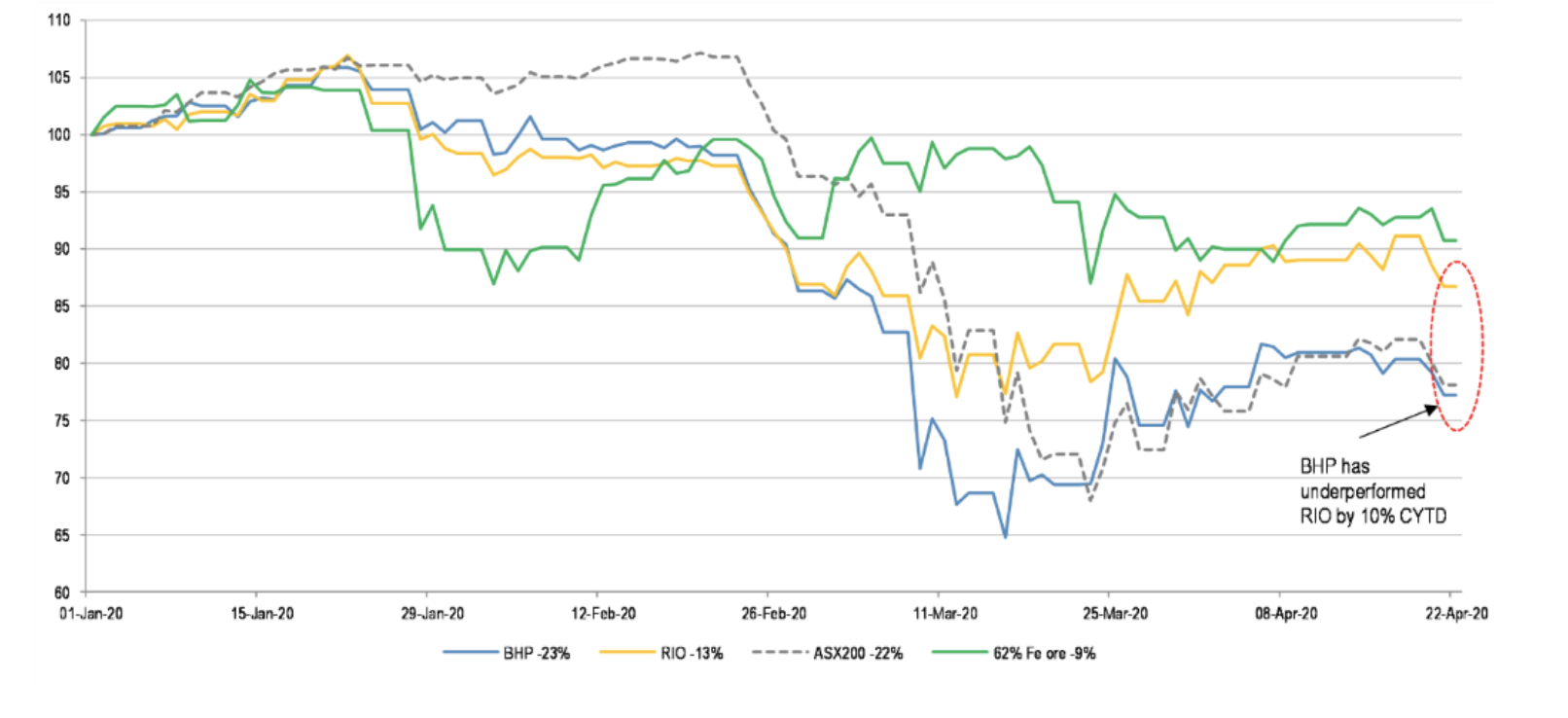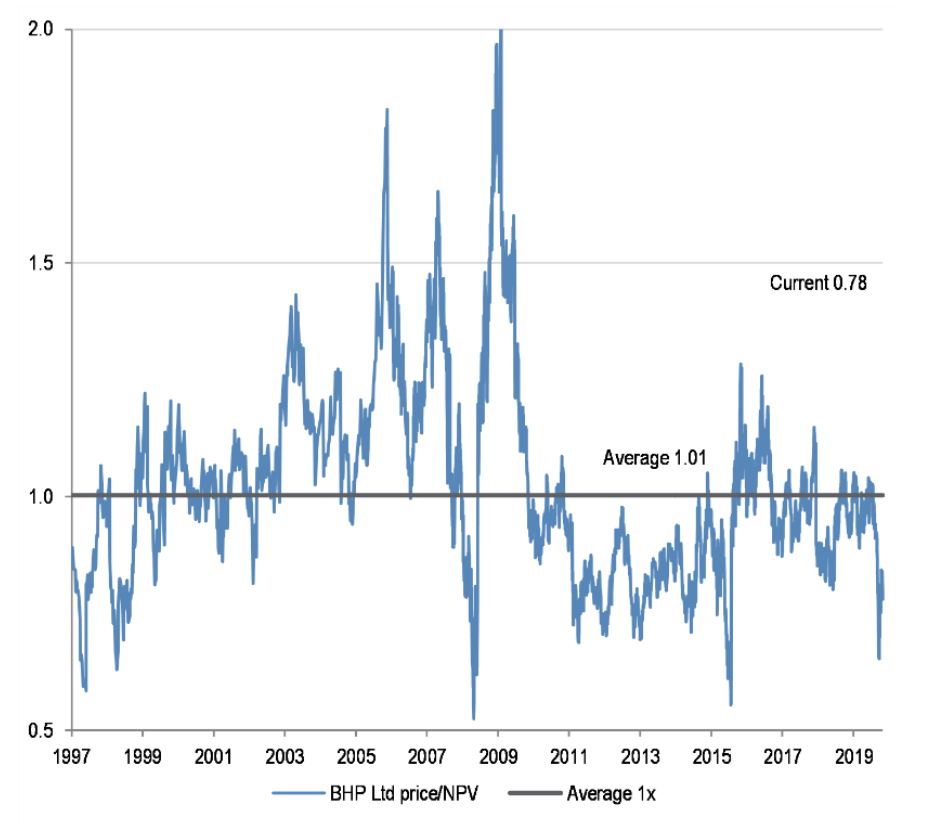World class assets at a world class price
The Australian iron ore industry is world-class. BHP’s iron ore operation in Western Australia is one of the world’s great businesses. Return on capital employed of over 45%... even ~20% during low prices. Accounting for over 50% of earnings it’s a business that anyone would love to own. What’s the bad news? There’s a couple of things:
Although supply/demand dynamics seem favourable now, iron ore is a commodity, and high commodity prices eventually beget higher supply. This is why we like the diversified nature of BHP’s asset suite compared to some of its peers who have a much higher reliance a single commodity.
In the past, previous BHP management has taken a fair portion of the mountainous cashflow provided by this great business and made poor investment decisions. The good news is that financial discipline has returned under current management.
BHP is in strong financial shape and generating significant free cashflow. Recently, the share price has lagged its peers, however, we believe BHP’s balance sheet, commodity exposures and reinvestment options make it a compelling investment proposition.
COVID-19 Impact
BHP’s business has been relatively resilient through the crisis to-date. China has the biggest impact on Iron Ore demand and hence price. Emerging from their lockdown China is getting back to work and monetary conditions are easy with further commodity-intensive fiscal stimulus likely.
The iron ore price has been remarkably resilient and at these levels, along with a currency tailwind, the major producers are printing cash. Importantly, with a very strong balance sheet (Net debt/EBITDA ~0.5x), BHP is well placed for whatever comes next.
The big COVID-19 risk for the company is that one of their mining sites has a virus breakout. We understand the company is working hard (distancing, testing and quarantining) to mitigate this risk.
Iron ore inventories in China
BHP is a diversified mining company, however, its most profitable commodity remains iron ore. China is by far the most important customer for iron ore and tracking their iron ore inventories remains a key metric to watch – as we are currently seeing in the oil market, any large build-up in inventories can be a big headwind for prices.
The good news for BHP is that iron ore inventories in China remain at normal levels with a reduction in China’s steel production due to COVID-19 being offset by only modest supply growth from the major producing countries, particularly Brazil.

Source: UBS Evidence Lab, Thomson Reuters, Steelhome, Bloomberg, UBS
How to value BHP
BHP’s strong financial position, quality business and management team are supported by an attractive valuation. Since the beginning of 2020 BHP has underperformed its key peer RIO (yellow line) as well as its key commodity iron ore (green line).

Source: J.P. Morgan estimates, Bloomberg
Below is a valuation chart which uses a metric, Net Present Value (“NPV”), that captures earnings through a full commodity price cycle. The chart shows that BHP over the long term has traded around 1x NPV and is currently trading at a ~20% discount, further providing attractive valuation support.

Source: J.P. Morgan estimates
A rare opportunity to buy high-quality businesses at very attractive prices
At the heart of BHP lies a world-class asset. Strong financial discipline in the good times has put the company in a very healthy financial position to navigate whatever lays ahead. In our experience, market dislocations like the one we are experiencing throw out some rare opportunities to buy high-quality businesses at very attractive prices.
For us, BHP is one of several of these opportunities on offer at present.
Invest where fair value exceeds market price
Airlie Funds Management employs a prudent, common-sense investment approach that identifies Australian companies based on their financial strength, attractive durable business characteristics and the quality of their management teams. To learn more, click ‘contact’ below.
The above wire was co-authored by Matt Williams, Portfolio Manager of the Airlie Australian
Share Fund and Terry Couper, Head of Research at Airlie Funds Management
1 stock mentioned

